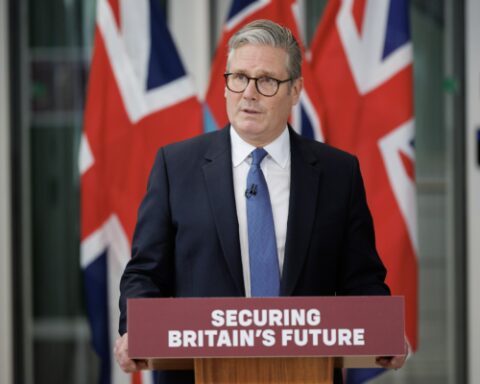The French National Assembly reportedly resolved to remove a prime minister from office for the first time in over 50 years on Wednesday, resulting in the collapse of President Emmanuel Macron’s government.
This action is indicative of the political gridlock that has paralyzed France.
The country’s public finances are currently in a state of uncertainty as a result of the development.
The government of Prime Minister Michel Barnier was forced to resign as a result of the support of 331 legislators in the 577-seat lower house, which supported a no-confidence motion.
The vote on Wednesday demonstrates the potential for the eurozone’s second-largest economy to become unmanageable.
The democracy of France is being put to the proof by the increasing fragmentation and polarization of its political ranks.
The National Assembly last overthrew a government in 1962, during which time France was still experiencing the repercussions of Algeria’s war for independence and an assassination attempt on then-President Charles de Gaulle.
The nation was instead burdened with a hung parliament as a result of Macron’s attempt to prevent the rise of Marine Le Pen’s far-right National Rally by calling snap elections this summer.
The National Assembly, which is divided between Macron loyalists, Le Pen’s supporters, and an unruly alliance of progressive parties, fractured over its initial task: the approval of the government’s budget for 2025.
After Barnier proposed 60 billion euros in expenditure cuts and tax increases, Le Pen and leftist lawmakers endorsed the no-confidence motion, which is equivalent to $63.1 billion.
The budget was designed to reduce France’s deficit, which is expected to exceed 6% of gross domestic product this year, which is twice the European Union’s limit.
A solemn-looking Barnier stated to a rowdy lower house just moments before the vote that the government urgently needs to repair its finances.
He also noted that France spends more on servicing its public debt than on its total defense budget.
A broadside was delivered to Macron by the no-confidence vote, as he had previously rejected a nominee for prime minister from the New Popular Front, a leftist coalition that secured the most ballots in the snap elections in September.
Macron was accused by his opponents of disregarding the will of the electors.
The departure of Barnier, who was only three months into his tenure, has exacerbated the calls for Macron to resign from the alliance’s largest party, the far-left France Unbowed—an option that the president has rejected.
[READ MORE: South Korean President Backtracks on Martial Law Only Hours After Attempting Coup]








